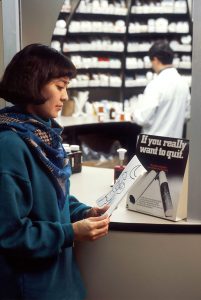Scheduling surgery can be exciting and scary at the same time. We may worry about the operation and recovery process while still feeling excited to finally solve an ongoing, painful problem. As we age, these worries often increase…but they don’t have to. Surgery—especially outpatient orthopedic procedures like those performed at Pacific Surgical Center (PSC)—is nothing to fear no matter how old you are. Don’t postpone it and continue living in pain or with limited mobility.
The American Society of Anesthesiologists admits that “While being older makes surgery more likely, it can also increase your potential for risks during procedures. Some common health problems related to aging—increased blood pressure, clogged arteries, and heart and lung disease—may make it more likely that you’ll experience side effects or complications during or after surgery.” But with a little prep-work and organization, you can minimize down-time and get back on your feet again quickly and safely.
 “Preparing to undergo surgery can be similar to training for a marathon…Running a marathon is physically and mentally taxing, and so is undergoing surgery,” say specialists with U.S. News and World Report. “Your medical team will provide detailed instructions on what you can eat before surgery and how many hours before the procedure you can consume food. More broadly, you should have a strategy to consume the right nutrition, drop or pause unhealthy habits and boost your exercise in the weeks leading up to surgery to promote post-op healing and recovery.”
“Preparing to undergo surgery can be similar to training for a marathon…Running a marathon is physically and mentally taxing, and so is undergoing surgery,” say specialists with U.S. News and World Report. “Your medical team will provide detailed instructions on what you can eat before surgery and how many hours before the procedure you can consume food. More broadly, you should have a strategy to consume the right nutrition, drop or pause unhealthy habits and boost your exercise in the weeks leading up to surgery to promote post-op healing and recovery.”
Their tips include consuming protein in the days before to promote wound healing and maintain muscle mass while you recover. Plant-based foods reduce inflammation and taking extra fiber helps with the constipation often brought on by pain medication. Smoking and high sugar intake can cause infection so limit them beforehand. And increase physical exercise—with your doctor’s ok—in the weeks before surgery to combat inactivity-induced blood clots. But, as always, the key is to ask lots of questions and always follow your doctor’s instructions closely and thoroughly.
If you’ll be undergoing anesthesia, the American Association of Nurse Anesthetists suggests patients “Do your homework. Learn about the type of anesthesia that will be used for your surgery, including potential side effects. Find out if any might signal the need to contact a health care provider afterward.”
On surgery day, be sure to ask about removing such things as jewelry and piercings, hearing aids, contacts, dentures, and even acrylic nails or nail polish. These can all have very real side effects during the operation. If your doctor says not to eat beforehand, that often includes gum, mints, and lozenges. If in doubt, ask. Even a little slip can cause surgery to be postponed and no-one wants to wait longer than necessary.
You can even prep your house to make things easier. Doctors from the National Library of Medicine provide a few ways coming home won’t slow you down. They suggest sleeping, eating, bathing, and relaxing all on the same floor of your home, if possible. Keep phones, chargers, and television remotes handy to avoid having to get up when you want them. And if you need help, ask for it. Either from family and friends or a professional, part-time caregiver. Avoid falls by removing throw rugs, using night lights, and monitoring small pets who may become trip-hazards in their rush to welcome you home.
At PSC, doctors use cutting-edge equipment and techniques to make surgery minimally invasive and keep recovery complications to a minimum. Their orthopedic team regularly treats musculoskeletal trauma, degenerative diseases, pain, arthritis or osteoporosis, sports injuries, infections, congenital conditions and work-related injuries for patients of all ages and backgrounds.
 Because they’re a focused, outpatient clinic, PSC staff can spend the extra time to customize a plan for your individual needs. Imaging services are available on-site and extraneous return visits are kept to an absolute minimum. This means you’re home the same day and can begin recovering by dinnertime. And with a longstanding commitment to transparency pricing, financial sticker shock won’t cause a relapse.
Because they’re a focused, outpatient clinic, PSC staff can spend the extra time to customize a plan for your individual needs. Imaging services are available on-site and extraneous return visits are kept to an absolute minimum. This means you’re home the same day and can begin recovering by dinnertime. And with a longstanding commitment to transparency pricing, financial sticker shock won’t cause a relapse.
When you’re ready to schedule an appointment, call Pacific Surgical Center at 800-442-7900 or drop them a message online. You can even read through their physician list and then request a specialist for your visit. The start preparing for surgery so you’ll be relaxed and right-minded.
David Bowie once said that “aging is an extraordinary process where you become the person you always should have been.” Thanks to PSC, that best version of you can hike, explore, dance, run, and be everything it wants to.



